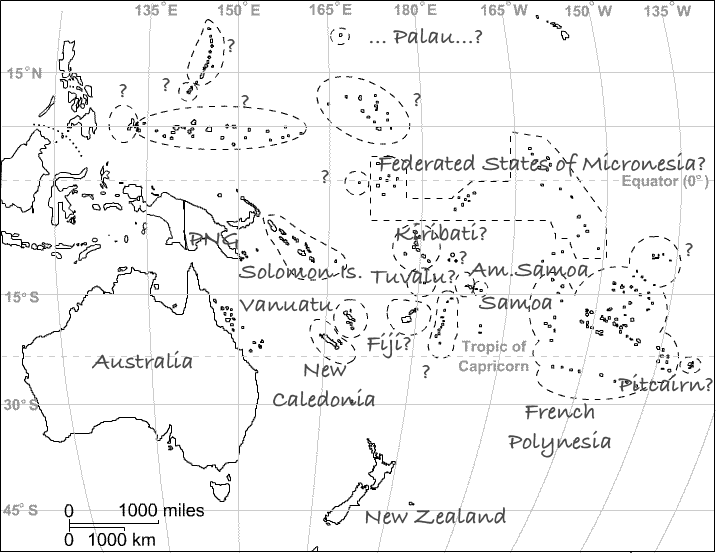For Philip Newton.
I have had maybe twenty years of engagement with artificial languages, from 13 through to 34. I’m no longer active in the respective language communities; but they have been a big part of how I have been formed, a big part of such fame as I have, and remain a big part of who I am.
- Esperanto was my first, from 13 through to maybe 22.
- Then Lojban, from 21 to 34.
- Then Klingon, from 23 to 34.
- Along the way, more passive interest in other conlangs, including Occidental and Interglosa.
My interest in artificial languages was an interest in languages, in retrospect; it was aided along by the fact that artificial languages are (typically) so much easier to learn than natural languages, so you can get up and running quicker—and get less distracted by the irregularities and quirks that linguists are supposed to find interesting. Then again, there are some bits of language that are not just morphology.
In fact, one of the questions that became more interesting to me, the more I learned about conlangs and language, was where did conlangs get their stylistics from, if they are not subject to normal natural language evolution? (I’d worked out the answer to that eventually, and it was bit less overwhelming than I thought—because I had functionalism in my repertoire by then. Esperanto doesn’t count, because Esperanto was natural enough to get its stylistics from German.)
My interest in artificial languages was also driven by a quest for glory. It was the same quest for glory that drove my interest in Greek linguistics. Artificial language communities are small ponds, and I was quite happy to become a big fish.
I got to be a reasonably big fish in Australian Esperanto community. The next big thing, the future promise, the expert in Esperanto culture and literature, the up and coming poet.
I was a bigger thing still in Klingon. After all, I went after the Big Prize—translating Hamlet into Klingon. I forced myself into some humility by ensuring I had a co-translator for it, so I would not lionise the credit. I earned some more humility by working out that I was not the best stylist in the language—Will “charghwI’” Martin was. A useful life lesson, acknowledging that I could be bested. I was not accustomed to it.
I was the biggest fish in the smallest pool, Lojban. The first fluent speaker, the translator churning out stupendous amounts of text, the animating force behind language conservatism, who then upended everything by supporting the reformers—and, then further, by abandoning activity.
The downside to having been a big fish in all of them was the guilt that came with leaving them behind. The bigger a fish I was, the more the guilt: Nick Nicholas’ answer to What is it like to be a kabeinto? What was it like to leave Esperantujo? I just cannot speak to most Lojbanists any more.
But. This sequence is about affirming gains, not my accustomed mourning losses.
I learned from my twenty years.
From Esperanto, I learned poetics, and history, and Mitteleuropa culture, and Central and Eastern European literature, and idealism—and compromise when the idealism doesn’t work out.
From Klingon, I learned stylistics, and translation quirks, and a bit of linguistic typology, and Bible Studies (translating the Gospel of Mark from the original). And humility.
From Lojban, I learned formal semantics, and less formal semantics, predicate logic, and some more linguistic typology, and Robert’s Rules of Order. And responsibility.
And from all of them, I learned collaboration, and aspiration, and expression, and many flavours of fulfilment. For which I am ever in their debt.
